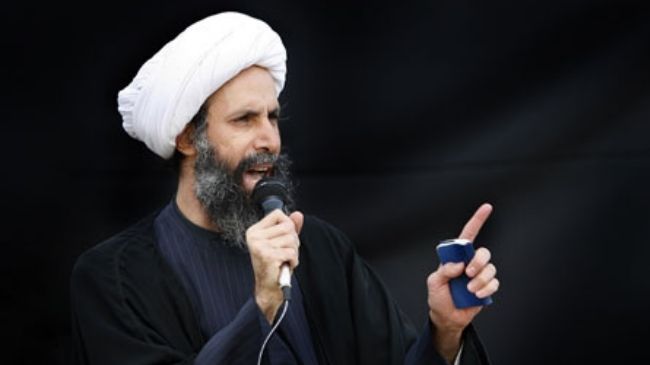Thursday 3 December 2015
Zeid Ra’ad Al Hussein
UN High Commissioner for Human Rights
c/o OHCHR-UNOG
8-14 Avenue de la Paix
1211 Geneva 10
Switzerland
Sent by email to: urgent-action@ohchr.org
Dear Sir or Madam,
RE: Death sentence against Sheikh Nimr Baqir al-Nimr (Saudi Arabia)
We are writing once again to request your urgent intervention to help stop the execution of Sheikh Nimr Baqir al-Nimr in Saudi Arabia.
Since our last appeal to you on 26 October 2015 circumstances have deteriorated for Sheikh Nimr with credible information emerging in the last few days that his execution may be imminent.
Saudi Arabia’s Okaz newspaper said last week that 55 people were awaiting execution for “terrorist crimes” that killed more than 100 civilians and 71 security personnel.
On 23 November, the semi-official newspaper al Riyadh reported that 52 people would be put to death soon, but later pulled the story from its website without explanation.
The sheikh’s fate nows lies in the hands of the Saudi ruler, King Salman, who can exercise his right of clemency.
Sheikh is a leading Shia scholar for whom the Islamic Human Rights Commission (IHRC)has consistently campaigned since his arrest in 2012 while he was still a minor. He was detained on trumped up charges of apostasy and terrorism after leading anti-government protests in the country. He has been severely tortured in detention.
In view of OHCHR’s ongoing concerns over Saudi Arabia’s extensive use of the death penalty, IHRC calls on the office to exert pressure on Riyadh to revoke the sentence and immediately release Sheikh Nimr.
Sheikh Nimr is one of many victims of the government’s crackdown on all opposition to its authoritarian regime. IHRC’s research from 2011 (the beginning of the demonstrations in the Shi’a majority Eastern Province) indicates that there are an estimated 30,000 political prisoners in Saudi Arabia out of a population of approximately 18 million Saudi nationals. Whilst the 30,000 political prisoners are drawn from different sections of Saudi society, the government uses the arrest of personalities like Sheikh Nimr to sectarianise opposition to the regime.
Sheikh al-Nimr has been active in demanding more liberty, constitutional changes and an end to sectarian discrimination in the country. His arrest, detention and planned execution are set against the backdrop of the increasing violence and authoritarianism of the Saudi state that seeks to marginalise and abuse minority groups in particular.
The fact that Saudi Arabia seems to be going ahead with multiple executions in defiance of a consensus amongst international human rights organisations that many of them rest on unsafe verdicts, is something that should lead the UN to reconsider Saudi Arabia’s position on the UN Human Rights Council.
We trust all necessary steps will be taken to halt any impending execution and secure Sheikh Nimr’s immediate release.
Yours faithfully,
Massoud Shadjareh
Chair






